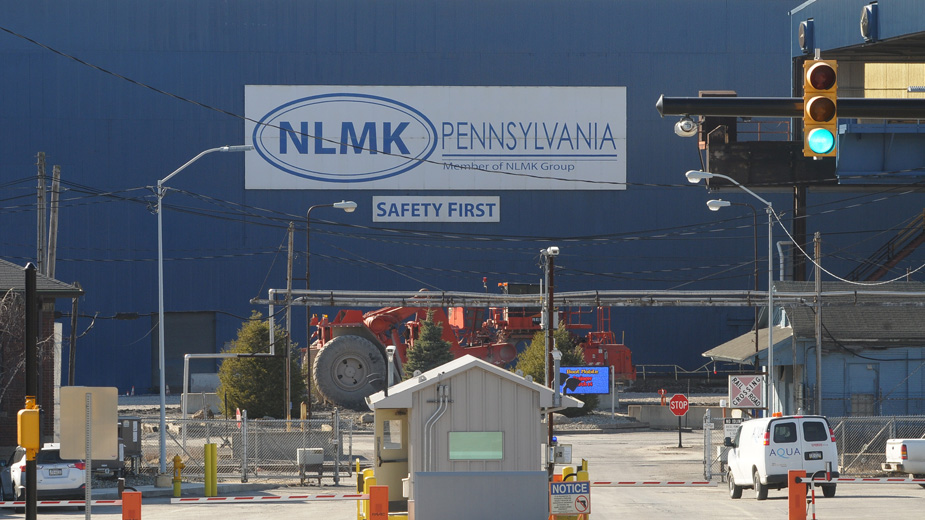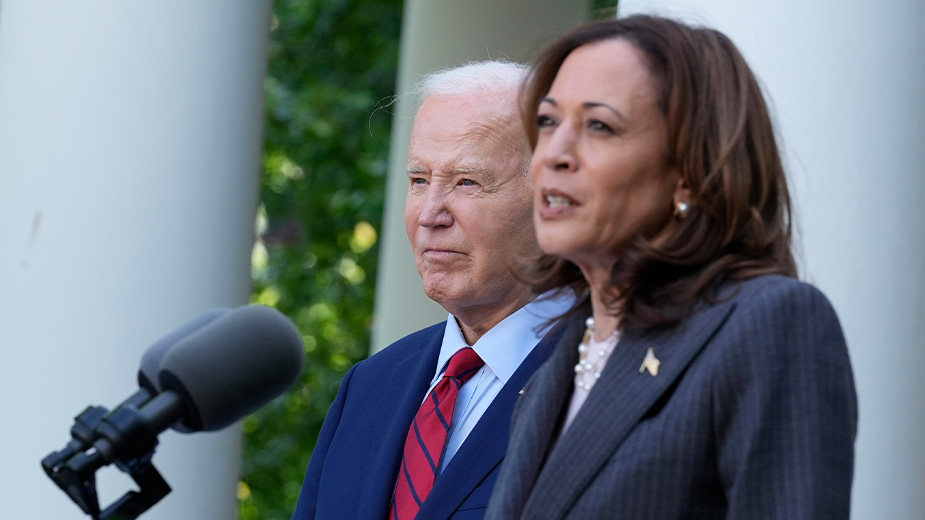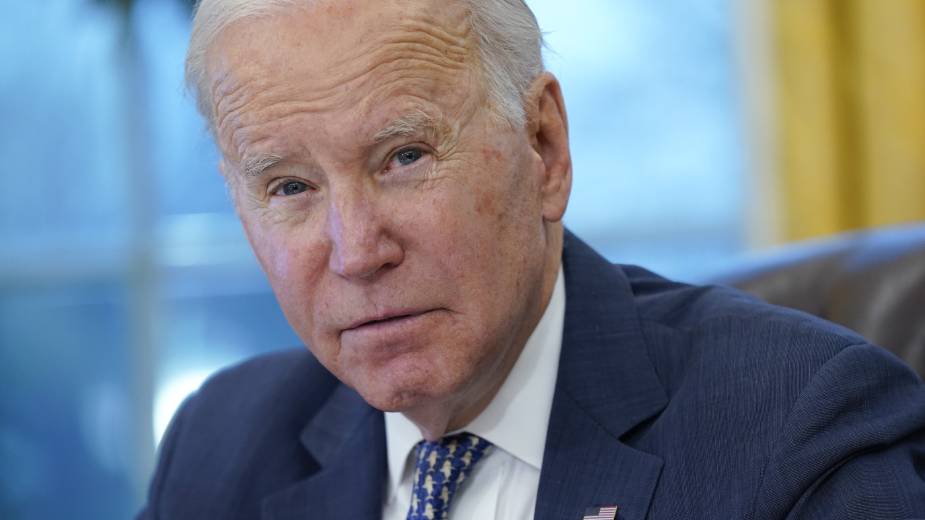Steel Producers, Farmers Await Word on Tariffs
YOUNGSTOWN, Ohio – Ultimately, it’s boiled down to a waiting game between NLMK USA and the U.S. Department of Commerce, as that agency evaluates whether to award the steelmaker an exemption on tariffs the Trump Administration has placed on the steel slab the company imports to manufacture its product.
“A decision could come any day now,” says Bob Miller, president and CEO of NLMK USA, which employs 750 at its plant in Farrell, Pennsylvania, and another 350 at a plant in Portage, Indiana. “Our competitors don’t have to pay tariffs, and it’s an unfair tax on our business,” he asserts.
In the meantime, the steelmaker has to take it on the chin and absorb a 25% duty on the steel slab it imports from its parent company, Russia-based Novolipetsk Steel Public Joint Stock Co.
To alleviate some of the price pressure, NLMK has reached out to domestic suppliers and those in countries that were awarded exemptions from the penalties, but the supply is insufficient to meet demand in the market right now.
“We’re having a hard time getting our needs met from alternative sources,” Miller says.
In March, President Donald Trump announced he would slap tariffs of 25% on steel and aluminum products imported to the United States from the European Union, Canada, Mexico and other countries including China, Japan and Russia. The tariffs took effect June 1, initiating what could escalate into a global trade war between the United States, its long-standing adversaries, and even its closest allies.
For NLMK, one of the few escape routes is for Commerce to approve its application for an exemption, which it filed in May, Miller says. In order to qualify for an exemption, the company must demonstrate that the product it imports is not produced domestically in quantities to support NLMK’s business.
“Commerce has its own studies that proves there is no domestic market for slabs in the U.S.,” Miller says.
Without an exemption, Miller says it could be difficult for the plant to remain profitable.
“Right now, the order book is really strong,” he says. However, should the tariffs remain in place for a prolonged period and the market takes a turn for the worse, NLMK’s very existence in Farrell is at risk, he warns.
“Right now, we continue to buy from our parent,” he says.
NLMK USA imports most of its steel slabs – about 95% – from Russia, Miller says. The slabs are fed into the Farrell plant’s hot strip mill and processed into coil and then sold to customers. Domestic producers that make slab usually process it into coil themselves, and aren’t in the business to sell slab to competitors, he notes.
U.S. Sen. Bob Casey, D-Pa., says he met with U.S. Secretary of Commerce Wilbur Ross in May about securing a waiver for the company. And, U.S. Rep. Mike Kelly, R-3rd, says he met last month with President Trump and requested an expedited decision on an exemption.
More than 20,000 applications seeking exemptions from the tariffs have been filed since May. About 100 have been approved thus far, according to published reports.
The financial health of NLMK is of paramount concern to city officials in Farrell, which derives a large percentage of its tax revenue from the plant.
“They’re 22% of the general fund,” says Mike Ceci, city manager. That amounts to about $660,000 of a total $3 million annually in income and property taxes used to support safety services throughout the community.
To lose a corporate anchor such as NLMK would be “catastrophic,” Ceci says. Not only would the loss of that plant eliminate 750 direct jobs, it would lead to the elimination of hundreds of other contracting, service and supply-chain jobs.
Such an upheaval would financially and psychologically damage this city of about 5,000, Ceci says, just as it’s starting to emerge from fiscal emergency. “These are good working-class folks trying to make things better for their kids.”
President Trump’s tariffs have elicited mixed reactions across the economy, much of it depending on which industry is affected. Domestic steelmakers, for example, see benefits to the tariffs since they discourage lower-priced imports from entering the U.S. market and undercutting American producers.
On the other hand, those companies that purchase steel and use it in the manufacturing process would be paying higher prices for the material, thus increasing their production costs.
“Tariffs create winners and losers in the economy,” observes A.J. Sumell, professor of economics at Youngstown State University.
General Motors Co., for example, has stated that a prolonged trade war would suppress exports of its vehicles, leading to layoffs in the domestic auto industry, Sumell says. This also impacts other facets of the automotive supply chain.
“Service industries are impacted as well,” he says.
In recent weeks, the focus has turned to the trade slugfest between the United States and China.
In April, China responded to Trump’s tariffs on steel and aluminum with tariffs on pork and other products. On July 9, the U.S. retaliated by imposing tariffs on another $34 billion worth of Chinese goods, and China responded in kind with penalties on $34 billion worth of American products – including automobiles, soybeans and other agricultural items.
Soybean farmers in particular are irritated with the policy.
“We’re now looking at a 25% tariff on every single soybean that we try to sell to China,” Kirk Merritt, executive director of the Ohio Soybean Association, said in a statement. “This makes us less competitive in the global market and with 61% of all our current soybean exports going to China, it means we’re likely to see negative effects on soybean prices and farmers’ incomes.”
About one-third of all soybeans grown in the U.S. are exported to China, accounting for $14 billion in sales. Ohio alone produces $2.5 billion worth of soybeans annually.
According to the United States Department of Agriculture’s 2016-2017 Annual Bulletin for Ohio, Trumbull County harvested 26,000 acres of soybeans in 2016, more than any other crop in the county. Cash receipts in 2012 yielded $20.8 million, based on the last census.
Mahoning County boasted 15,200 harvested acres of soybean in 2016, also more than any other crop. Cash receipts of $10.4 million were recorded in 2012.
Columbiana County as well is heavily invested in the soybean market, as 19,600 acres – the second largest crop other than corn – were harvested in 2016, and in 2012, soybeans brought cash receipts of just more than $8 million.
“The industries that are going to be the most clearly hurt are in agriculture,” Sumell says. “We have a huge trade surplus in corn, wheat, beef, pork – the negative impact on trade restrictions will be most evident in agriculture since most of their business is export oriented.”
Those that stand the most to lose from President Trump’s trade policy – those living in rural areas – solidly backed the president during the election of 2016.
“They would be the first dominoes to fall in a trade war,” Sumell says, and the political ramifications might be acute enough to convince the administration to reverse policy.
“It’s a competitive industry and their margins are already razor thin. Uncertainty in the market has a greater impact on farmers than other industries,” the YSU economist says.
“All estimates are that there will be a negative impact on net employment with a penchant to stoke inflation.”
Often the outcome of trade wars are measured not by which country “wins,” but by which country loses the least. “There’s a concern that if we lose less than China, then we win.”
President Trump might be holding an ace card: the strong U.S. economy, Sumell says.
“If a trade war is going to happen, it’s happening at a good time – the economy is doing well,” he says. “But it remains to be seen to what extent this tit-for-tat will continue and what impact it will have.”
Copyright 2024 The Business Journal, Youngstown, Ohio.



